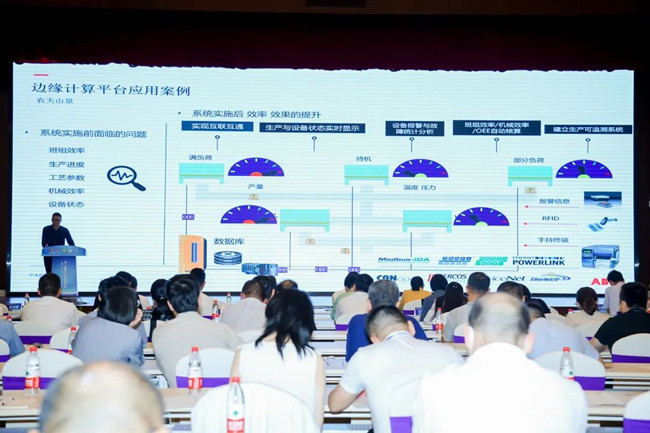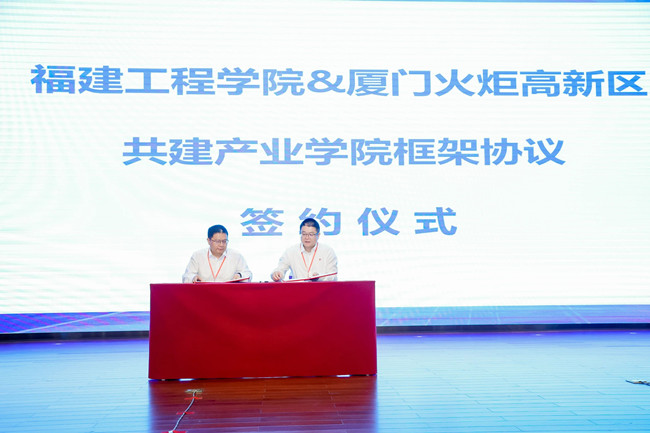The Second Xiamen Forum on Industry-Education Integration was held at Huaqiao University (HQU) in Fujian province on May 13.

The Second Xiamen Forum on Industry-Education Integration opens at HQU on May 13. [Photo/WeChat account: Xiamen Torch Academy]
The event, undertaken by the Xiamen Torch Academy, gathered about 200 participants from all walks of life to discuss accelerating the cultivation of industry-education integrated high-tech enterprises.

The Fujian University of Technology and the Xiamen Torch Development Zone for High Technology Industries sign an agreement on co-building an industrial college at the forum. [Photo/WeChat account: Xiamen Torch Academy]
The Fujian University of Technology and the Xiamen Torch Development Zone for High Technology Industries signed a framework agreement on co-building an industrial college at the forum.
The two sides agreed to leverage their strengths to form a new engineering industry-education integrated platform that combines cooperation in scientific and technological innovation, joint talent training programs, and job opportunities development.
“Deepening the combination of industry and education, strengthening school-enterprise cooperation, and adopting a collaborative tutoring method are major links in the deep integration of enterprises, universities and research institutions,” said Wang Jianhua, president of the China Industry-University-Research Institute Collaboration Association.
Wang also encouraged higher education institutions to serve enterprises with innovative achievements and called for enterprises to work with universities in talent cultivation and the commercialization of sci-tech achievements.
“Industry-education integration is an important measure to promote the higher education reform in an all-round way,” said Lei Chaozi, head of the Department of Science, Technology and Informatization at the Ministry of Education.
Lei called on universities to focus on the practical needs of scientific research tasks and to transform quantity-oriented evaluations into contribution-oriented criteria.
As for methods to achieve industry-education combination, Tang Ning, president of Xiamen City University, advocated to reshape the cultivation ecology of such enterprises, and merge into Fujian province’s modern vocational education system, as well as into the construction and operation of Xiamen’s industry-education communities.
Yang Jingxue, general manager of Fujian Goktech, said: “The government should bridge the gap between schools and enterprises, coordinate the establishment of cooperation mechanisms, and offer support in the form of policies and venues.”
In recent years, the Xiamen Torch Development Zone for High Technology Industries has made efforts to establish a demand-oriented talent training model, explored school-enterprise cooperation and industry-education integration, and obtained practical results.
The Xiamen Torch Academy, as China's first industrial education platform affiliated with a high-tech economic area, has fully performed its role in enhancing resource aggregation and supporting the innovation ecosystem.
With talent services as its core, the academy has promoted talent training and recruitment, school-enterprise cooperation, technological achievement transformation and industrial research, as well as exchanges and collaborations with the high-tech zone.
Enterprises in the zone have also explored measures to integrate industry and education such as customizing talent training programs, supporting sci-tech project applications, organizing competitions, compiling textbooks and building training bases with higher education institutions, according to participants of the forum.